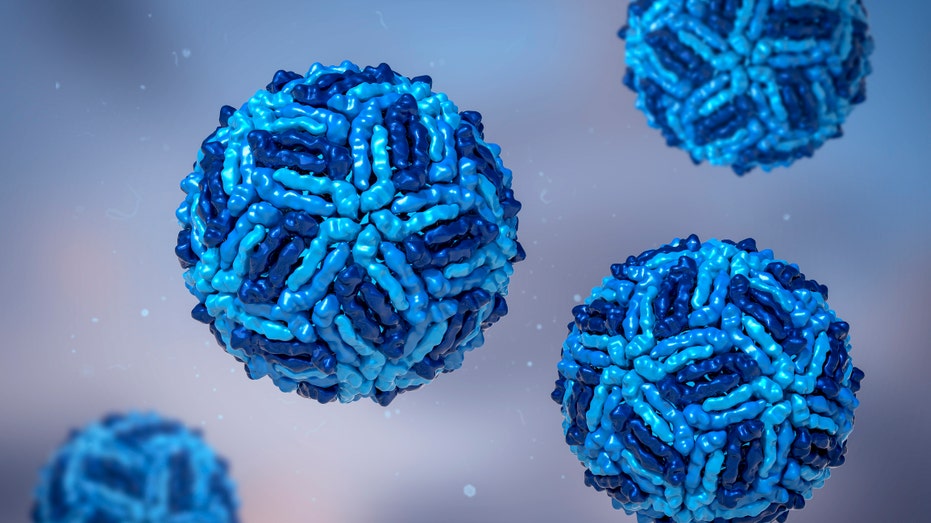Health
Kansas Reports Serious West Nile Virus Cases as Mosquito Season Peaks

Kansas health officials are closely monitoring the rise of West Nile virus cases this year, with reports indicating six confirmed cases as of August 15, 2023. Among these, five cases have been classified as serious, particularly concerning as mosquito activity reaches its peak across the state.
The Kansas Department of Health and Environment (KDHE) has noted that three of the serious cases are located in the north-central region, while three others are reported in south-central Kansas. The KDHE has categorized five of the six cases as neuroinvasive, meaning they have affected the central nervous system, leading to more severe health implications.
Jill Bronaugh, a spokesperson for KDHE, elaborated on the differences between neuroinvasive and non-neuroinvasive cases. “Non-neuroinvasive cases are typically less severe and present with flu-like symptoms,” Bronaugh stated. In contrast, neuroinvasive cases can result in high fever, brain inflammation, disorientation, and even paralysis.
“Neuroinvasive cases are those in which there is clinical evidence of involvement of the central nervous system in the disease process,” she explained. Patients with these severe cases generally experience longer recovery times and require more extensive medical intervention.
Despite the seriousness of the current cases, the KDHE report indicates that the numbers are still lower than those reported last year, when Kansas recorded 64 infections and four deaths. Health officials are warning that as mosquito season continues into late summer, the risk of infection may increase.
The KDHE has established a West Nile virus dashboard that is updated weekly, providing ongoing surveillance data from July through September. According to the Centers for Disease Control and Prevention (CDC), West Nile virus is primarily transmitted through mosquito bites, with peak transmission occurring from August to early September. Each year, approximately 2,000 people in the U.S. are diagnosed with the virus, although many cases go unreported due to mild symptoms.
The CDC outlines common symptoms that may appear 2–6 days after exposure, including high fever, headaches, neck stiffness, and, in severe cases, neurological symptoms such as tremors or paralysis. Unfortunately, there are no specific medications available for treating West Nile virus, but most infected individuals do recover.
Health officials are advocating for preventive measures to protect residents from mosquito bites. Recommendations include using insect repellent, wearing long sleeves and pants when outdoors, and eliminating standing water around homes to reduce mosquito breeding grounds.
As the summer progresses and mosquito populations grow, residents are urged to remain vigilant in safeguarding their health.
-

 Science1 month ago
Science1 month agoNostradamus’ 2026 Predictions: Star Death and Dark Events Loom
-

 Technology2 months ago
Technology2 months agoOpenAI to Implement Age Verification for ChatGPT by December 2025
-

 Technology7 months ago
Technology7 months agoDiscover the Top 10 Calorie Counting Apps of 2025
-

 Health5 months ago
Health5 months agoBella Hadid Shares Health Update After Treatment for Lyme Disease
-

 Health5 months ago
Health5 months agoAnalysts Project Stronger Growth for Apple’s iPhone 17 Lineup
-

 Technology5 months ago
Technology5 months agoElectric Moto Influencer Surronster Arrested in Tijuana
-

 Education5 months ago
Education5 months agoHarvard Secures Court Victory Over Federal Funding Cuts
-

 Health5 months ago
Health5 months agoErin Bates Shares Recovery Update Following Sepsis Complications
-

 Technology7 months ago
Technology7 months agoMeta Initiates $60B AI Data Center Expansion, Starting in Ohio
-

 Technology6 months ago
Technology6 months agoDiscover How to Reverse Image Search Using ChatGPT Effortlessly
-

 Science4 months ago
Science4 months agoStarship V3 Set for 2026 Launch After Successful Final Test of Version 2
-

 Technology7 months ago
Technology7 months agoRecovering a Suspended TikTok Account: A Step-by-Step Guide




















